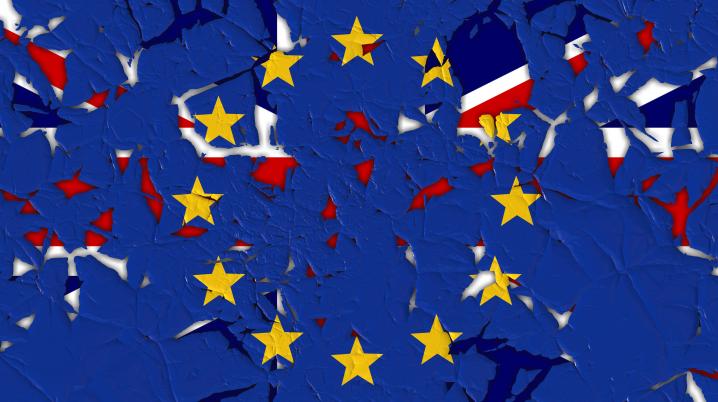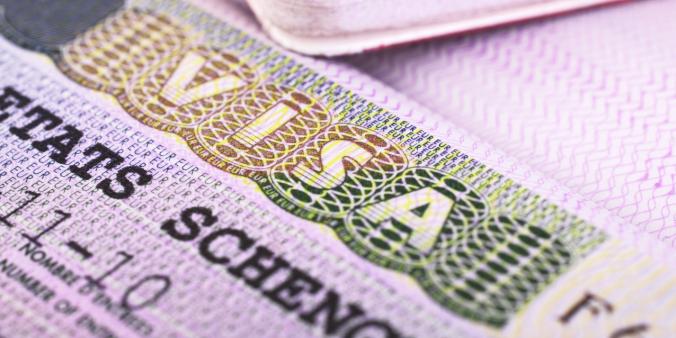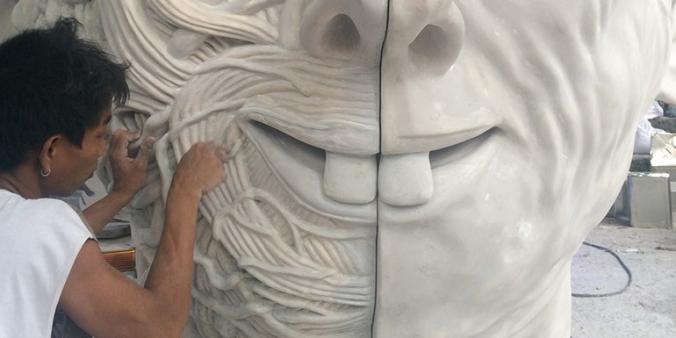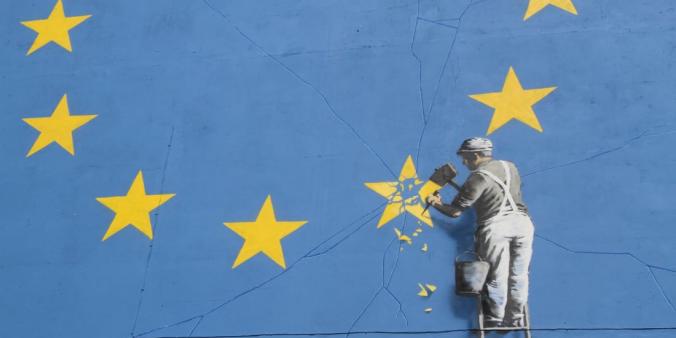
After months of negotiations, the UK and the EU finally reached a deal on 24 December 2020 which will govern their new partnership, effectively starting on 1 January 2021. New barriers have materialised that will make it more difficult for European and British citizens to visit, work and settle in each other’s countries. We at DutchCulture strongly believe that cooperation and exchanges across the EU-UK borders must continue. In support of that belief, DutchCulture signed a joint statement drafted by the European Cultural Foundation, the Goethe Institut, the British Council and several others expressing that: “We consider Brexit an igniting moment in a time that creates a new positive sense of urgency and forges a renewed commitment to building and strengthening shared European cultural spaces, of which the UK has always been and will always be part.”
Continuing cultural exchange
What will the new EU-UK partnership mean for cultural exchange? The end to the freedom of movement of people, services and goods between the UK and the countries in the EU/EEA and Switzerland means that cultural professionals will need to spend more time, energy and money navigating the administrative hurdles now in place. It remains to be seen how the various aspects of the EU-UK agreement will work out in practice. The introduction of a new framework of UK immigration rules currently coincides with a set of restrictions on mobility intended to limit the spread of COVID-19. However, artists in the future will certainly want to travel around multiple countries for work in a short period of time. They need to be able to simultaneously plan years in advance and to take part in projects at short notice.
Understanding the new rules
Although it might seem daunting, it is vital to not be put off by the new administrative obstacles. We advise you to start preparing early to make sure all relevant paperwork is processed in time. You can expect paperwork when you wish to obtain a short-stay work visa and to declare your equipment and merchandise when you pass through customs. The British Incorporated Society of Musicians (ISM) has conducted a survey and found that UK performers have already suffered a loss of opportunities, work and income since the referendum in 2016 due to uncertainty about their mobility rights post-Brexit. The creative sector in the United Kingdom is petitioning the UK government to negotiate a special visa scheme enabling free travel and work for up to 90 days for British artists in the EU.
Whereas European citizens need to learn about the new British immigration system, British citizens will now, like all other non-EU visa-free nationals, need to deal with all the separate immigration systems in all the languages of the EU countries they used to travel to effortlessly for work. DutchCulture's Mobility Info Point supports individual makers and organisations by providing information and advice on continuing their cultural exchange across borders.
We would like to hear from you
DutchCulture is monitoring the consequences of the UK’s exit from the EU both for cultural organisations in the Netherlands that wish to hire a British citizen and for EU citizens that wish to work in the creative sector in the UK. We have prepared a FAQ that will be continuously updated with answers to questions that you might encounter. We encourage you to share your questions and experiences with us via infopoint@dutchculture.nl.
FAQs
- Will an EU citizen need a visa when visiting the United Kingdom? Or will British visitors need a visa to enter the Schengen area including the Netherlands?
-
- EU citizens that wish to visit the United Kingdom as a tourist do not require a visa to enter. If you are looking to enter the UK for other reasons (such as work or study) you will need to apply for permission in advance. EU citizens and other non-visa nationals can visit the UK as a tourist for a period of up to 6 months. You can read more on the page Entering the UK on the UK Home Office website to learn more about what you can expect at the border;
- British citizens can travel through the Schengen area without a visa for a period of 90 days in any 180-day period as a tourist. Your British passport will be stamped when you enter and leave and those days will be counted towards this period of 90 days in that 180-day period. You will have to keep track of your time in and out of the Schengen area if you are travelling between the UK and the Schengen area regularly. Sometimes short-time work as an artist is permitted during your stay. This depends on the legislation of the country you are visiting and differs from country to country. The page ‘Visit Europe from 1 January 2021’ on the UK Home Office gives you an overview of what you need to be aware of before travelling.
- EU citizens that wish to visit the United Kingdom as a tourist do not require a visa to enter. If you are looking to enter the UK for other reasons (such as work or study) you will need to apply for permission in advance. EU citizens and other non-visa nationals can visit the UK as a tourist for a period of up to 6 months. You can read more on the page Entering the UK on the UK Home Office website to learn more about what you can expect at the border;
- A British citizen has been working for my Dutch organisation since before Brexit. Will they be able to continue working for me?
-
The answer is probably yes. The UK left the EU officially on 31 January 2020. However, both sides agreed to keep many things the same until 31 December 2020, to allow enough time to agree to the terms of the new trade deal. If the British citizen settled in the Netherlands before the end of the transition period on 31 December 2020 by registering at the city hall, that person is eligible to file an application for a residence permit under the Withdrawal Agreement until 30 June 2021. The British citizen will receive a residence permit that states ‘Residence Document Withdrawal Agreement’ that grants them full access to the labour market (‘Arbeid vrij toegestaan’) i.e. to work under the same conditions as prior to Brexit.
- My organisation in the Netherlands would like to include a British artist in a production scheduled for 2021. Will this be possible?
-
British citizens can participate in a cultural project in the Netherlands as an artist or musician, as a structural companion of an artist or musician, as a visual artist, curator or restorer. They are allowed to work in the Netherlands for a short period of 6 consecutive weeks within a timeframe of 13 weeks without applying for a work permit in advance. If the British citizen is required for a longer period of up to three months, the inviting organisation will be obliged to apply for a work permit (or tewerkstellingsvergunning) from the UWV. For more information about working in the Netherlands as a non-EU citizen see our earlier entry: Working as an artist in the Netherlands.
- What if I am a British citizen planning to settle in the EU after 31 December 2020?
-
If you plan to move to EU territory in 2021 for a period longer than 3 months, you will have to go through the immigration procedures of the country of your intended stay. You can no longer take up residence under the favourable terms of the Withdrawal Agreement. There are several immigration routes to settle in the Netherlands for all non-EU citizens: for example for the purpose of work, studying or join your partner. You can find more information about regulations regarding moving to the Netherlands for the purpose of work in our earlier entry: Working as an artist in the Netherlands; The UK Home Office has also published a page Living in the Netherlands that you might find useful.
- I have a residence permit based on the Withdrawal Agreement in another EU country. Can I work in the Netherlands with this residence permit?
-
- Unfortunately, a residence permit based on the Withdrawal Agreement (WA) is only valid in the issuing country. British citizens can no longer freely move to another EU country in 2021 and ‘swap’ their residence permit under the Withdrawal Agreement for one in a different EU member state;
- If you are a self-employed British artist in for example Germany with a residence permit based on the Withdrawal Agreement and you are invited to participate in a project in the Netherlands, the regulations mentioned in the previous answer will most likely apply to you as well. We at the Mobility Info Point are in close contact with the relevant organisations to find out how British citizens in this situation will be treated in the Netherlands and will inform you here as soon as we know more.
- Unfortunately, a residence permit based on the Withdrawal Agreement (WA) is only valid in the issuing country. British citizens can no longer freely move to another EU country in 2021 and ‘swap’ their residence permit under the Withdrawal Agreement for one in a different EU member state;
- What if I am a European citizen planning to work temporarily in the UK?
-
- Artists planning to take part in an art-related activity in the United Kingdom (e.g. literature, performing arts, visual arts, culinary arts) and their personal or technical staff like choreographers, stage managers, make-up artists, personal bodyguards or press officers who are attending the same event can apply for permission or a visa depending on the duration of the project:
- There are three types of visas relevant for organisations and individuals working in the cultural field that allow work in the UK for a limited period:
- Short-term engagement lasting up to 1 month: the Permitted Paid Engagement visa (PPE). EU citizens and their personal or technical staff that take part in arts or entertainment activities can report to a UK border official with an invitation letter from the organiser, along with documentation demonstrating that you are an artist or performer (for example by bringing a CV, press clippings, promotional material) and proof of sufficient financial means to support yourself, of having a place to stay and proof that you will leave at the end of your visit. Please refer to the UK Home Office website here and here for detailed information on what you will be asked to show at the border.
- Short-term engagement lasting up to 3 months: you can apply for a non-extendable Tier 5 Creative & Sporting visa concession. In this case, you report to a UK border official with a Certificate of Sponsorship that the organiser has applied for in advance + proof of sufficient financial means to support yourself, of a place to stay and proof that you will leave at the end of your visit. The Certificate of Sponsorship is not an actual Certificate on paper but a reference number to a digital file that holds information on your employment in the UK.
- Short-term engagement lasting longer than 3 months and up to 12 months: you can apply for an extendable Tier 5 Creative & Sporting visa. Please mind the official processing times of applications. For this visa, you and the organiser will have to prove your unique contribution to the UK labour market and show proof that you will be paid at least the minimum salary. You show up at the UK border with a Certificate of Sponsorship that the organiser has applied for in advance + proof of sufficient financial means to support yourself, of a place to stay and proof that you will leave at the end of your visit. You will have to provide your biometric data (picture, fingerprints and signature) before travelling to be issued a residence permit 10 days after your intended date of arrival.
- Short-term engagement lasting up to 1 month: the Permitted Paid Engagement visa (PPE). EU citizens and their personal or technical staff that take part in arts or entertainment activities can report to a UK border official with an invitation letter from the organiser, along with documentation demonstrating that you are an artist or performer (for example by bringing a CV, press clippings, promotional material) and proof of sufficient financial means to support yourself, of having a place to stay and proof that you will leave at the end of your visit. Please refer to the UK Home Office website here and here for detailed information on what you will be asked to show at the border.
- Please note: it is vital for these routes that you do not enter through the electronic gates (e-gates) but that you find a border official to check your documents and issue the relevant visa/work authorisation on the spot. You will need a blank page in your passport for this.
- Furthermore, there is the Permitted Free Festival route, which enables a small list of certified UK festivals to invite international artists to come on the Standard Visitor visa. This is not applicable to EU citizens and nationalities from ‘high-income countries’ like the United States, Canada, Australia, Singapore, South Korea or Japan. This is a visa for nationals as mentioned on this list of the UK Home Office. Festivals that are currently on the list and eligible to use this route for their artists are mentioned here.
- Artists planning to take part in an art-related activity in the United Kingdom (e.g. literature, performing arts, visual arts, culinary arts) and their personal or technical staff like choreographers, stage managers, make-up artists, personal bodyguards or press officers who are attending the same event can apply for permission or a visa depending on the duration of the project:
- When temporarily working in the UK as a Dutch citizen, will I still be covered by the social security system of the Netherlands?
-
The Sociale Verzekeringsbank (SVB) is currently analysing the Trade and Cooperation Agreement to determine how it affects EU/Dutch citizens and holders of a residence permit who intend to temporarily stay, work or study in the UK from 1 January 2021.
- Will I be covered by my health insurance when travelling to/from the UK?
-
- Your European Health Insurance Card (EHIC) issued by a Dutch health insurance company is valid for emergency medical care in the UK only. Please contact your insurer and see if you need additional health- or travel insurance to make sure you are fully covered. For more information visit EHIC - European Health Insurance Card - SchengenVisaInfo;
- British citizens can use their current EHIC card in the European Union until it expires. The NHS will soon start replacing the EHIC cards with a new UK Global Health Insurance Card (GHIC). Please refer to the website of the NHS here.
- What will change for the transportation of goods across the EU/UK border when going through customs?
-
- Many things. Artwork, vinyl & CD’s, merchandise, props, set-pieces, technical equipment: Brexit means a lot of checks on your goods at the border. Goods brought in temporarily or with the intent to sell them need to be declared and provided with admission documents. You will need a so-called EORI-registration number and will need to declare goods, with the help of a customs agent (douane-expediteur) if necessary. For more information, visit the website of UK HM Revenue & Customs. When exporting goods, it is important to distinguish between temporary and permanent export:
- Temporary export: for instance props or set pieces for a performance or musical instruments over a certain value. An ATA Carnet will be needed for the temporary exporting of goods between the EU and the UK. An ATA Carnet can be applied for from the Kamer van Koophandel (exporting from the Netherlands) or from the London Chamber of Commerce and Industry (exporting from the UK). Please also refer to this page on the website of the HM Revenue and Customs.
- Import or export with the purpose to sell: for instance vinyl, CDs, merchandise, (art)books and magazines. Depending on the type and quantity of the product you may be subject to paying VAT and third-country import duties. For more information visit Brexitloket (in Dutch) or HM Revenue & Customs (in English).
- Temporary export: for instance props or set pieces for a performance or musical instruments over a certain value. An ATA Carnet will be needed for the temporary exporting of goods between the EU and the UK. An ATA Carnet can be applied for from the Kamer van Koophandel (exporting from the Netherlands) or from the London Chamber of Commerce and Industry (exporting from the UK). Please also refer to this page on the website of the HM Revenue and Customs.
- Many things. Artwork, vinyl & CD’s, merchandise, props, set-pieces, technical equipment: Brexit means a lot of checks on your goods at the border. Goods brought in temporarily or with the intent to sell them need to be declared and provided with admission documents. You will need a so-called EORI-registration number and will need to declare goods, with the help of a customs agent (douane-expediteur) if necessary. For more information, visit the website of UK HM Revenue & Customs. When exporting goods, it is important to distinguish between temporary and permanent export:
- If my services are taxed in the UK (for instance in performing arts), will I be able to deduct these in my annual tax returns in the Netherlands to avoid double taxation the way I used to?
-
Yes. Unlike VAT, laws on income tax are not harmonised within the EU but depend on bilateral tax agreements. Brexit has no influence on the bilateral tax treaty between the Netherlands and the UK. For more information on preventing double taxation in the international performing arts sector, see The Ultimate Cookbook for Cultural Managers: Artist Taxation in an International Context by PEARLE.
Video
In this video, Laurens Meijer (DutchCulture) and Kilian Kayser (3voor12) explain what Brexit means for touring musicians.
Brexit session with Embassy of the Netherlands in London
On 18 February 2021 the Embassy of the Netherlands in London hosted a Brexit information and Q&A session for Dutch nationals living in the UK via Zoom (in Dutch). Click here to watch the video.
Podcast: tips & tricks for working in the UK
Working as an artist in the United Kingdom has not become easier since Brexit. Listen to our podcast to help you prepare. We talked to Kilian Kayser, percussionist in the Amsterdam-based band Personal Trainer performed several times in the UK and shares his experiences. (in Dutch)
Disclaimer
Additional research and information are gathered and edited by Laurens Meijer of DutchCulture’s Mobility Info Point. The purpose of this text and FAQ is to present collected information on all relevant aspects of working across the UK-NL borders. Immigration laws are complex and details change frequently; and therefore we advise you to always consult the government websites linked in this article. Please be aware that although the information provided is gathered with utmost care, this article cannot serve as a legal basis for any type of action and no rights can be derived from it.
If you are a cultural professional who wants to go to the UK, feel free to contact our Focal Countries Desk. If you have more questions about mobility in general, including the UK, please contact DutchCulture’s Mobility Info Point via infopoint@dutchculture.nl.
For funding possibilities, check out our Cultural Mobility Funding Guide or the websites of our partners Creative Industries Fund NL, Dutch Film Fund, Dutch Foundation for Literature, EYE International, Het Nieuwe Instituut, Mondriaan Fund, Performing Arts Fund, and the Embassy of the United Kingdom of the Netherlands in London.






